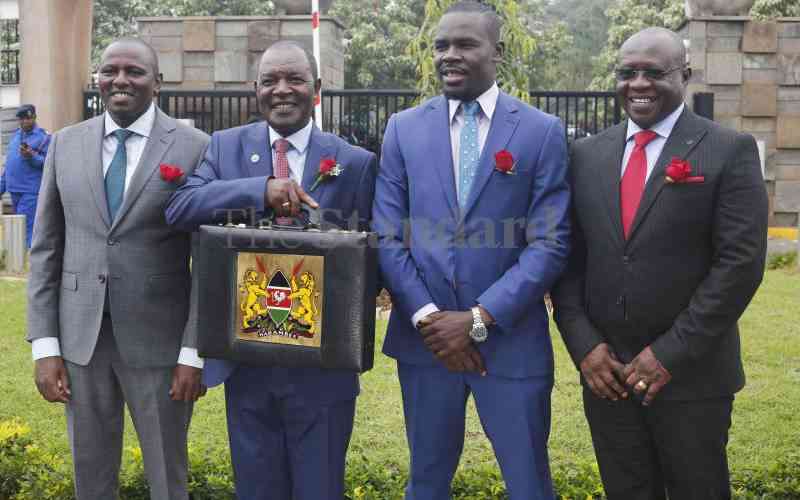×
The Standard e-Paper
Home To Bold Columnists

Majority leader Kimani Ichungwa (from left) CS Treasury Njuguna Ndungu, Majority Chief Whip Silvanus Osoro and Kilifi North MP Owen Baya during the Budget Highlights for FY 23/24 at the Parliament. June 15, 2023. [Elvis Ogina, Standard]
Kenyans have a reason to breathe ease and hope after the High Court has temporarily suspended the Finance Act 2023.